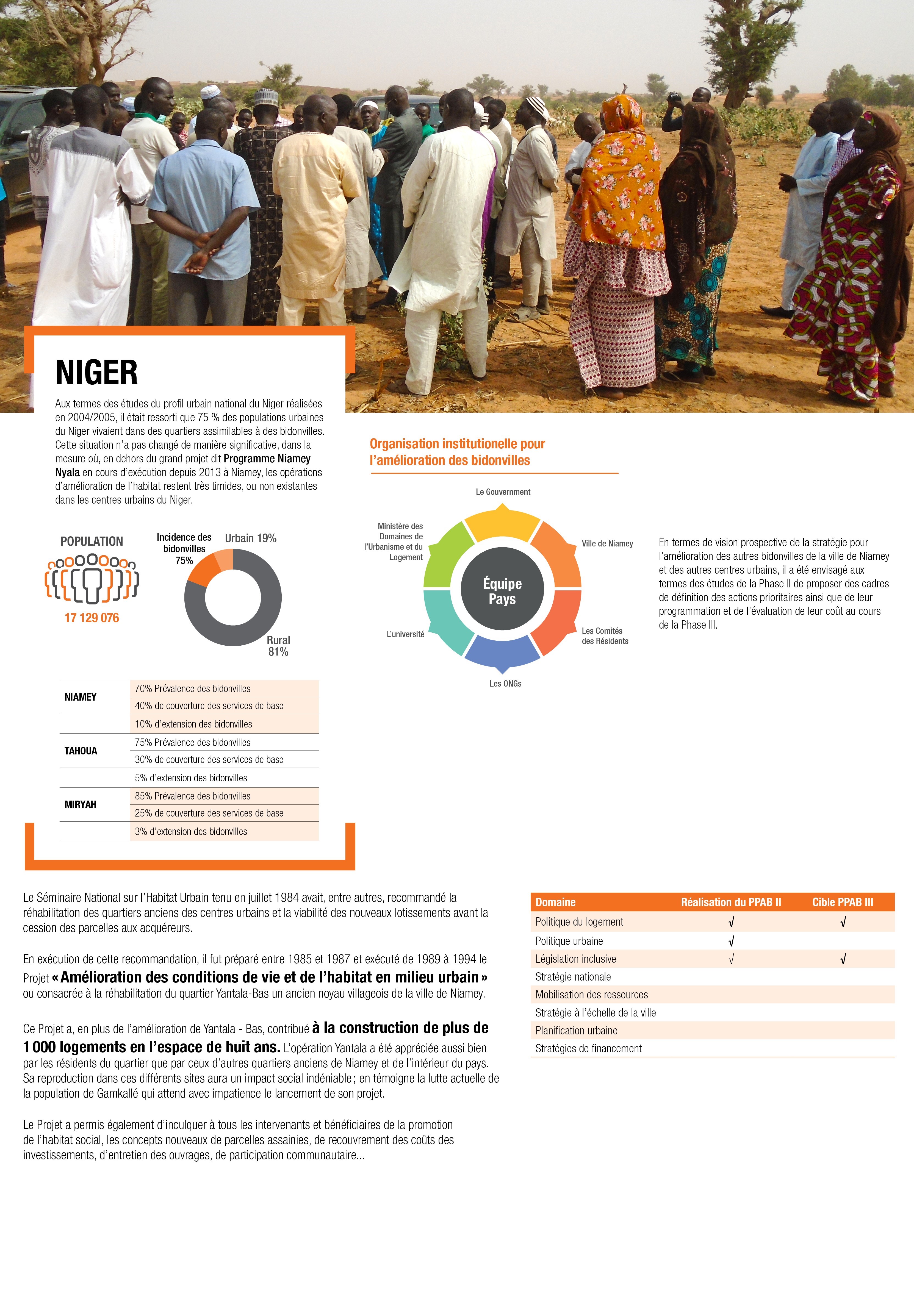Niger
Niger is mostly rural and landlocked, with only 18.5 per cent of the population urbanised. More than two thirds of the land is covered by the Sahara. The country is regularly prone to chronic food insecurity and recurrent natural crises. People often suffer from droughts, floods and locust infestations. In addition, the country is also facing increasing political instability. Since the arrival of the two major Islamist terrorist groups AQIM (Al-Qaeda in the Land of the Islamic Maghreb) and Boko Haram (from Nigeria), the security situation in some regions of the country has been volatile. Niger also shares a growing concern about the fragile security situation in the desert region with neighbouring Sahel states Mali, Burkina Faso and Chad, as organised crime, particularly trafficking in arms, drugs and human beings, spreads in the region.
Niger is considered one of the world's least-developed nations and faces wide-spread poverty. More than 70 per cent of the population lives in severe poverty. At the same time, the urban population is growing fast, with 4 out of 5 urban residents living in slums.
Niger’s population is a very young one, with the half of people aged below 15 years.
In 2004, Niger started implementing phase 1 of the PSUP. The two-century old villages of Gamkalle and Saga in Niamey, the capital of the country, were chosen for the implementation of PSUP Phase 2 and 3. Key priorities identified included security of tenure, water and sanitation and transfer of technology in building durable housing structures.
With an astonishing USD 4.37 million, committed to funding the PSUP, the Nigerien government is the biggest contributor in PSUP co-financing so far. In total, USD 770,000 was assigned to the upgrading of the two pilot villages in Phase 3 of PSUP while another USD 3,600,000 was assigned for the scaling up of the projects in phase 4. The funds are coming from both the national government and the local government, which illustrates the presence of strong political will. Among these funds, USD 100,000 was assigned for a range of community led projects.


